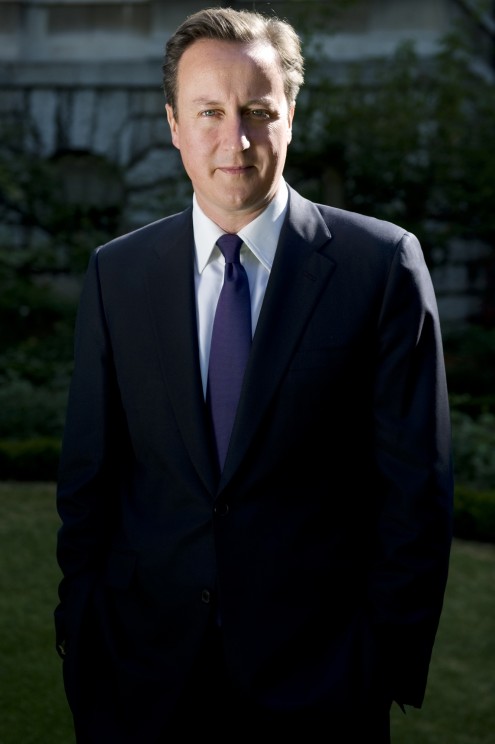By Caitlin Tyler-Richards
Over the past few months, the Oral History Review has become rather demanding. In February, we asked readers to experiment with the short form article. A few weeks ago, our upcoming interim editor Dr. Stephanie Gilmore sent out a call for papers for our special Winter/Spring 2016 issue, “Listening to and for LGBTQ Lives.” Now, we’d like you to also take over our OUPBlog posting duties.
 Well, “take over” might be a hyperbole. However, we have always hoped to use this and our other social media platforms to encourage discussion within the oral history discipline, and to spark exchanges with those working with oral histories outside the field. We like to imagine that through our podcasts, interviews and book reviews, we have brought about some conversations or inspired new ways to approach oral history. However, we can do better.
Well, “take over” might be a hyperbole. However, we have always hoped to use this and our other social media platforms to encourage discussion within the oral history discipline, and to spark exchanges with those working with oral histories outside the field. We like to imagine that through our podcasts, interviews and book reviews, we have brought about some conversations or inspired new ways to approach oral history. However, we can do better.
Towards that end, we are putting out a “call for blog posts” for this summer. These posts should fall in line with the aforementioned goal to promote the engagement between and beyond those in oral history field. Like our hardcopy counterpart, we are especially interested in posts that explore oral history in the digital age. As you might have gathered, we thrive on puns and the occasional, outdated pop culture reference. These are even more appreciated when coupled with clean and thoughtful insights into oral history work.
We are currently looking for posts between 500-800 words and 15-20 minutes of audio or video. Though, because we operate on the wonderful worldwide web, we are open to negotiation in terms of media and format. We should also stress that while we welcome posts that showcase a particular project, we do not want to serve as landing page for anyone’s kickstarter.
Please direct any additional questions, pitches or submissions to the social media coordinator, Caitlin Tyler-Richards, at ohreview[at]gmail[dot]com. You may also message us on Twitter (@oralhistreview) or Facebook.
We can’t wait to see what you all have to say.
Caitlin Tyler-Richards is the editorial/media assistant at the Oral History Review. When not sharing profound witticisms at @OralHistReview, Caitlin pursues a PhD in African History at the University of Wisconsin-Madison. Her research revolves around the intersection of West African history, literature and identity construction, as well as a fledgling interest in digital humanities. Before coming to Madison, Caitlin worked for the Lannan Center for Poetics and Social Practice at Georgetown University.
The Oral History Review, published by the Oral History Association, is the U.S. journal of record for the theory and practice of oral history. Its primary mission is to explore the nature and significance of oral history and advance understanding of the field among scholars, educators, practitioners, and the general public. Follow them on Twitter at @oralhistreview, like them on Facebook, add them to your circles on Google Plus, follow them on Tumblr, listen to them on Soundcloud, or follow the latest OUPblog posts via email or RSS to preview, learn, connect, discover, and study oral history.
Subscribe to the OUPblog via email or RSS.
Subscribe to only history articles on the OUPblog via email or RSS.
Image credit: Retro Microphone. © Kohlerphoto via iStockphoto.
The post A call for oral history bloggers appeared first on OUPblog.

By Caitlin Tyler-Richards
This week, in the spirit of our upcoming special issue on oral history’s evolving technologies, we want to (re)introduce everyone to the website Oral History in the Digital Age
, a substantial collaboration between several institutions to “put museums, libraries, and oral historians in a position to address collectively issues of video, digitization, preservation, and intellectual property and to provide both a scholarly framework and regularly updated best practices for moving forward.”
We especially want to direct people to the site’s “Thinking Big” video series, which features reflections by top scholars on the evolving relationship between oral history and digital media. Below is one of the videos from the series, an interview with United States Senate historian and author of Doing Oral History Don Ritchie. We’ve also include a quiz to test readers on the oral history and digital media.
Click here to view the embedded video.
“And I discovered that the basic fundamental practices of doing oral history have not changed. The face to face interviews, the types of things you need to do to research and to engage a person, to draw them out and to ask non-leading questions, open ended questions and things like that — that stayed the same regardless of what the technology is. But everything around it changed.”
Your Score:
Your Ranking:
Caitlin Tyler-Richards is the editorial/ media assistant at the Oral History Review. When not sharing profound witticisms at @OralHistReview, Caitlin pursues a PhD in African History at the University of Wisconsin-Madison. Her research revolves around the intersection of West African history, literature and identity construction, as well as a fledgling interest in digital humanities. Before coming to Madison, Caitlin worked for the Lannan Center for Poetics and Social Practice at Georgetown University.
The Oral History Review, published by the Oral History Association, is the U.S. journal of record for the theory and practice of oral history. Its primary mission is to explore the nature and significance of oral history and advance understanding of the field among scholars, educators, practitioners, and the general public. Follow them on Twitter at @oralhistreview and like them on Facebook to preview the latest from the Review, learn about other oral history projects, connect with oral history centers across the world, and discover topics that you may have thought were even remotely connected to the study of oral history. Keep an eye out for upcoming posts on the OUPblog for addendum to past articles, interviews with scholars in oral history and related fields, and fieldnotes on conferences, workshops, etc.
Subscribe to the OUPblog via email or RSS.
Subscribe to only history articles on the OUPblog via email or RSS.
The post Re-introducing Oral History in the Digital Age appeared first on OUPblog.

By Julian Richards
As the world wrings its hands at the slaughter in Syria and ponders what, if anything, it can do, the precedent of intervention in Libya constantly raises its head. Why was it right and proper for us to intervene in Libya to prevent humanitarian catastrophe, but we are choosing not to do so now in Syria? The most readily available response is that “Syria is much more complicated than Libya”, but this hardly seems to help our understanding.
For a country such as the UK, these are not only tricky questions of foreign policy; they also serve to throw into the spotlight that most tricky question of all: what sort of player should Britain be on the international stage in the twenty-first century? Are we at the vanguard of the free world, standing shoulder-to-shoulder with our American cousins in spreading democracy, liberal values and universal human rights around the world (a process that the UK government calls “Shaping a Stable World”), or are we – realistically – just a medium-sized European power with fairly limited military capabilities? As a Conservative back-bencher described it, in rather discourteous terms, is Britain fast becoming just a “Belgium with nukes”?

Prime Minister David Cameron. Source: number10.gov.uk.
When David Cameron came to power in 2010, one of the first things he did was to set up a
National Security Council. This was the first time in British history that such as institution – at least under this name – has been at the centre of foreign policy-making. The origins of the idea date back to the political aftermath of the Iraq War and Tony Blair’s much-derided “sofa politics” style of government, where big decisions (such as committing Britain’s military to a major conflict) were seen to be made as much by unelected special advisers as by cabinet members and Parliament, and the decision-making presented in Dodgy Dossiers. This, claimed Cameron, was no way to deal with major decisions affecting national security, and he pledged to change it as soon as he was in power.
Cameron made good on his promise. He linked the publication of a new National Security Strategy at the end of 2010, with the announcement of the findings of a Strategic Defence and Security Review (SDSR). With the bitter recriminations from the Armed Forces ringing in his ears in the face of the substantial defence cuts announced in the SDSR, the new National Security Council was almost immediately thrown into overdrive as the Arab Spring swept like a tsunami across North Africa and the Middle East. It was time to put the new policy-making process into practice. Within weeks, British fighter jets found themselves operating alongside French and other NATO partners in the skies over Libya. No-one in government would have predicted such a turn of events, and it suggested that Britain does see itself as an essentially interventionist power, at least in some cases.
Decisions
 Well, “take over” might be a hyperbole. However, we have always hoped to use this and our other social media platforms to encourage discussion within the oral history discipline, and to spark exchanges with those working with oral histories outside the field. We like to imagine that through our podcasts, interviews and book reviews, we have brought about some conversations or inspired new ways to approach oral history. However, we can do better.
Well, “take over” might be a hyperbole. However, we have always hoped to use this and our other social media platforms to encourage discussion within the oral history discipline, and to spark exchanges with those working with oral histories outside the field. We like to imagine that through our podcasts, interviews and book reviews, we have brought about some conversations or inspired new ways to approach oral history. However, we can do better.


